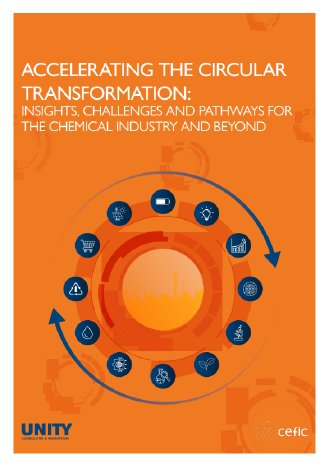The message is clear: while the industry is stepping up, scaling circularity will require decisive action across the entire policy, business, and societal ecosystem.
“The chemical industry is already a powerful catalyst in advancing the circular economy — turning waste into value and data into action. Yet, to unlock the full potential of this transformation, we must foster new capabilities, embrace innovations, and embed circularity into business models. It will take bold first movers and a collective societal shift to turn vision into lasting impact.” says Viviane Zimmermann, Partner at UNITY.
Based on findings, the study sets out a 5-Point Action Plan to drive forward the transition:
1. Drive forward a supportive regulatory framework with targeted incentives.
2. Facilitate investments in circular infrastructure and technologies.
3. Embed circular thinking across the economy and society.
4. Foster innovation through new forms of multi-stakeholder collaboration.
5. Monitor progress to close implementation gaps.
A survey of Cefic members reveals that:
- 90 % report high impact on their business activity due to the transition to a more circular economy.
- 72 % cite customer demand for circular models as a key driver.
- 82 % confirm the circular economy is embedded in corporate strategy.
- 52 % state their companies are advanced in the transition.
The findings of the study were discussed today (17 June at the Cefic-UNITY EU Green Week partner event: “Competitiveness & Circularity: A Win-Win for Europe’s Chemical Industry?”.
Read the full study here Circularity Study: Accelerating the circular transformation | UNITY Consulting & Innovation.


